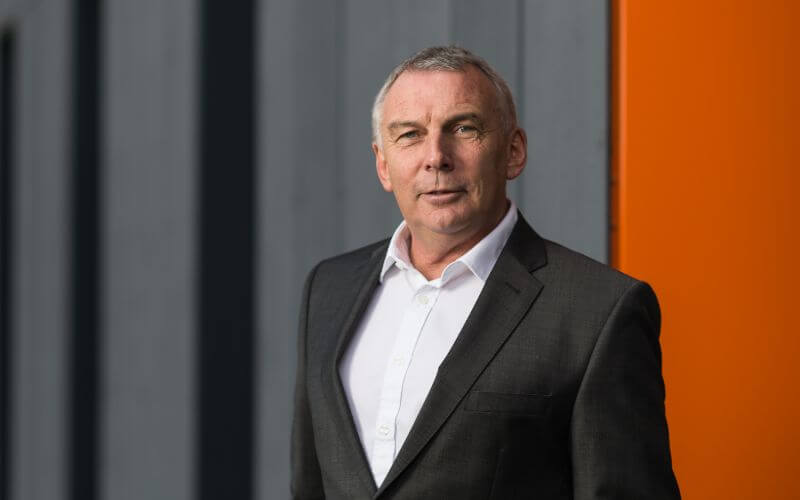Ahead of the crucial speech, business leaders from right across the North West have set out their expectations and hopes for what the Chancellor will announce in his second annual Budget.
Many are calling on the Chancellor to focus on a green recovery and deliver against promises to level-up the UK economy, while others want to hear that Liverpool's bid to become a freeport has been approved.
Clare Hayward, chair of the Cheshire and Warrington Local Enterprise Partnership said: “The Chancellor has a significant opportunity to support the delivery at pace of the necessary skills and technologies required to decarbonise the UK economy.
"Our region is highly industrialised and is therefore focussed on the development of green energy solutions such as carbon capture, hydrogen fuels, exploration of the role of natural capital and new technologies to improve the distribution of power.
“Plans to build the UK's first low carbon hydrogen production hub at Essar's Stanlow Refinery in Cheshire have already been announced. Any new incentives that encourage the growth of the industrial decarbonisation cluster are welcome and will help ensure that we can accelerate the decarbonisation.
"Reducing our carbon footprint is a critical global issue and front and centre of our vision for Cheshire and Warrington."
Dr Annette Bramley, director of the N8 Research Partnership – a strategic collaboration between the North’s eight research intensive universities - said: “I encourage the Chancellor and his team to reflect upon the findings of the Dasgupta review, published in early February. The ground breaking review articulated society’s collective failure to engage with nature sustainably and how our economies and wellbeing are intrinsically linked to the health of the natural world.
“Professor Dasgupta made clear that while whole ecosystems are on the brink of collapse, transformative change is possible - but action must be taken immediately. The UK’s commitment to delivering that change is brought into sharp focus by our hosting of COP26 later this year. The world is currently watching, looking for evidence that we are undertaking policies befitting our status as hosts of such a historically significant event."
Andrew Ruffler, chief executive of Professional Liverpool, said his organisation wants the Chancellor to prioritise commitments to levelling up the regions, particularly in transformational areas such as digital and physical infrastructure.
He said: "We would also welcome more focus on enabling inclusive growth through the provision of enhanced localised support and incentives for talent retention, skills development and entrepreneurship.
"These are all essential dynamics in driving the post-lockdown regional economy.”
Carl Williams, North West managing partner at Grant Thornton said: “It’s now time for a Budget with tangible financial commitments to the devolution agenda; and support for businesses to invest in the new skills, re-training, and digital ways of working which will be key for sustainable businesses and rewarding careers.”
Christopher Clarke, COO at EMC Capital, the family-owned Cheshire-based manufacturing group said: “I hope the Chancellor remembers that entrepreneurs are vitally-important to our economy and doesn’t do anything to discourage them from risk-taking and investing.
"If Entrepreneurs’ Relief is scrapped entirely, I fear many small business owners will be unfairly penalised when they come to sell, which in the long term may dampen the spirit of enterprise we need to grow our economy.”
Andrew Hirst, partner and chartered financial planner at Equilibrium said: “George Osborne’s pension changes in 2015 taught me one thing. Take predictions on tax changes with a very big pinch of salt. No one saw those revolutionary changes coming.
“My thoughts pre-Budget are that we are in highly unusual times, and therefore something radical could happen again. However, arguably it’s not the best time to be increasing taxes either, bearing in mind we need economic recovery first and foremost. Raising taxes now will not help at all.
“Perhaps most importantly, governments can borrow at historically low rates and defer increases to a more politically acceptable time. Therefore, adding additional financial pressure on families and individuals at a time when so many are already under strain could work against Westminster quite significantly.
“However, it would still be sensible to bring forward the use of all tax allowances/reliefs available just in case – pre-Budget, not pre-tax year end. With respect to CGT, the suggestion could be to use the £12,300 allowance – and perhaps the current 10% band too – and maximise pension and ISA contributions pre-Budget day.
“As with every Budget, speculation around IHT abounds; there has even been a cross party-agreed whitepaper on IHT reform sent to the Chancellor for consideration. What piqued my interest is the proposed scrapping of the ‘seven-year rule’, which allows people to gift as much as they want whilst still alive and be taxed at 0% if they are still alive seven years after the gift has been given.
“The suggestion in the aforementioned whitepaper was to replaced this with a cap of £30,000 per annum, with gifts above the surplus hit with an immediate IHT charge. That percentage charge was proposed at somewhere between 10-20%.
“For clients who, for intergenerational planning reasons, want to make large gifts to children or grandchildren in the next year or so – for example, property purchase – our suggestion would be that they consider bringing forward the gift pre-Budget day.”
KPMG is backing the Liverpool City Region’s bid to create a new freeport and drive inward investment, job creation and global trade ahead of the Budget.
Jennifer Lee, office senior partner in KPMG’s Liverpool office, outlined the benefits of a successful Liverpool bid, which would extend beyond the limits of the city and across the whole of the North West.
The bid, supported and formally endorsed by the Liverpool City Region LEP, builds on the city region’s maritime history and "unique position" as a Western-facing port with established Transatlantic and Irish Sea trade links.
According to Ms Lee, the designation of three ‘tax sites’ in distinct locations at Parkside in St Helens, Wirral Waters and 3MG in Halton, would represent a major opportunity to attract investment and strengthen the region’s position as a hotbed of innovation. It will also build on the city region’s manufacturing capability in automotive, biomanufacturing and chemicals, she said.
Ms Lee added: “The upcoming Budget is one of the most anticipated in living memory and a decision on the freeports designation could be pivotal for growth in the region.
“The plans in the bid would achieve all of the Government’s stated aims for freeports, namely to attract new investment and trade, create jobs, support the wider regional economy and increase levels of innovation.
“But the opportunities presented by a freeport in the city is wide-ranging for the whole region. Take trade, for example, where flows through the Port of Liverpool and other City Region gateways will increase and become more efficient, in turn spurring activity among manufacturers and logistics companies and provide a desirable hotbed for innovation-focused SMEs to be based at.
“The creation of clusters like this drives inward investment, in turn fuelling the regeneration of deprived areas and enabling social mobility and creating jobs."
Jon Meeten, tax partner for KPMG in the North West, argued that The Chancellor may stay away from significant reform at this stage for risk of damaging confidence.
He said: "As privately-owned businesses across the North West begin to tentatively plot their route back to business as usual, after so much upheaval and challenge, their key ask of the Chancellor will be for stability, when he delivers his Budget on 3 March.
"Most business leaders and owners accept the Treasury will need to raise funds at some point to help pay off our national Covid-19 debts, but sweeping reforms to taxes just now risks being a little too much to ask at a time of fragile recovery.
"However, the changes to our tax system that might have been expected next month, had we not still been in pandemic territory, are surely round the Covid corner, in either the Autumn Statement or next year’s Budget.
"North West business owners should put the deferral to use by planning for a possible raising of the rate of Capital Gains Tax.
"It’s possible that we might see measures announced on the 3rd but coming into effect at a later date, once the economy shows more concrete signs of recovery.
"There could also be minor tweaks to National Insurance contributions and a freezing of personal tax allowances.
"The question of an online tax has sparked a good deal of discussion and the Chancellor may feel that such a move might help to rejuvenate the high street as an alternative to online shopping as the economy begins to reopen.
"However, whilst there is a clear temptation to tax those who have done well during Covid (online retailers being an obvious example), the Chancellor needs be careful about stifling the raft of new business models that have emerged during the pandemic."
Murray Patt, founder of Manchester-based accountants Alexander Knight & Co, told Mr Sunak "don't kill off the green shoots of recovery".
He said: "We expect to see an increase in corporation tax but we need the rate and timescale at which it comes to be sustainable and realistic for business owners.
"Any measures taken by the Chancellor should not not kill off the green shoots of recovery that we are already seeing as the vaccine is rolled out. Entrepreneurs have worked incredibly hard to rescue their business during the past twelve months and the next few months need to be about giving them every opportunity to make tentative steps towards growth.
"Corporation tax is only paid on profits made and it would be harsh to punish those companies who have made slender profits by taxing them further at the point where they need all the support they can get. I hope and expect to see a budget for business that will help entrepreneurs navigate what we all hope will be the final furlong of the pandemic. An extension to furlough or a similar scheme will give companies some breathing space to step confidently into the second half of 2021."
John Downes, chief executive of Langtree and chairman of Sci-Tech Daresbury, added: “The Covid-19 pandemic has laid bare the fact that cutting edge science and technology is not only crucial to our collective wellbeing, but also a means to create the evenly balanced economic prosperity and growth we all want for our country.
"It has consequently been deeply encouraging to see the Government recognise this through a series of announcements and initiatives.
"The unveiling of the R&D Roadmap last summer rightly identified innovation as being key to the UK’s future on the global stage while the formation of the Advanced Research and Invention Agency (ARIA) was also a very welcome move.
"However, I believe this Budget offers the Chancellor a valuable opportunity to consider how the government can deploy one of its major policy strands – support for R&D – to address another: the levelling up agenda.
"Some steps have already been taken regarding this such as the UK Space Agency’s space hub programme. This will see the Science and Technology Facilities Council (STFC), through its Daresbury Laboratory at Sci-Tech Daresbury lead the project on behalf of the North West.
"Yet there is more to be done, and further regional investment will go some way to helping the Government reach its target of 2.4% of GDP being invested in R&D."
Christian Spence, head of future economies analytics at Manchester Metropolitan University, called for the maintenance of Covid-19 financial support, sustainable solutions to public finances and a strategic plan for the future.
He added: "With the announcement of the government’s roadmap to ease Coronavirus-related lockdown measures, the beginning of the end of the pandemic may now be in sight. However, the economic consequences are likely to last longer.
"Much of the demand-side of the economy will return cautiously but automatically, though some sectors may find their path back to pre-Covid levels a longer journey.
"Airlines, tourism and large-scale conferencing will take a while yet, with international responses at least as important as our own.
"The future path for the economies of the UK’s urban centres is perhaps more dependent on commuters’ views of home working than government policy and remains, at best, only vaguely understood.
"Part of the population has accumulated vast quantities of savings during the past year and it seems unlikely that these will be unwound any time soon.
"It’s hard to catch-up your foregone spending on services, and goods and retail spending have held up well during the crisis."




